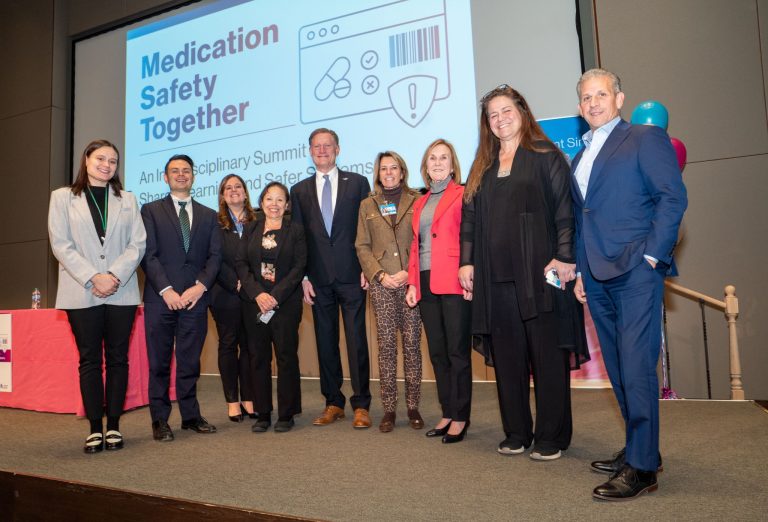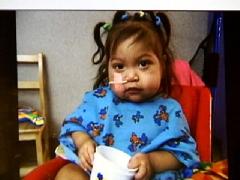For Immediate Release
SUMMARY – Pharmacist Rajendra Bhat says Medco is putting the public at risk with unrealistic demands on their employees. Medco’s quotas don’t give pharmacists enough time to check for errors with prescriptions, he said, which could harm or even kill a patient. Now, Bhat is risking his own health to draw attention to the issue with a hunger strike. Something that could help ease the strain on pharmacists is if more healthcare practices considered in office dispensing, which allows patients to collect their prescription directly after an appointment from the same building, rather than all patients from many practices travelling to a single pharmacy. This would also reduce the risk of mistakes being made through miscommunication. However, establishing this new system completely will take time, so in the meantime alternative action is required.
UPDATE – On July 13, 2010 an investigator from the US Senate Finance Committee contacted Mr Bhat and his attorney. They are seeking witnesses and new information and are considering reopening an investigation. A representative of the United Steelworkers Union contacted Bhat and expressed support and endorsement. Media from California, Indiana, Maryland and New York, India and Germany have carried Bhat’s story; the Florida press remains silent.
UPDATE – On July 26, 2010 Bhat had endured the 22nd day without food, taking only water. He remains clear-minded and remarkably strong. A video was posted to his Facebook page. As of this date, Bhat web-blog has been viewed more than 2000 times since opening on July 5, 2010. Bhat is gathering supporter’s names and information about the “Quota System” at the suggestion of the US Senate Finance Committee.
UPDATE – August 12, 2010. Day 39. The fight and the hunger strike continue.
UPDATE – August 23, 2010. Day 50. Mr Bhat’s peaceful protest for justice continues. His web is viewed more than 5100 times and it is updated daily.
UPDATE – September 16, 2010. Day 74. Mr Bhat is weak, but still fights for JUSTICE via daily posts to Facebook and his web as to his status. He is preparing his Final Message for posting to his web for posterity.
UPDATE – September 28, 2010. Day 86. Pharmacist Bhat seeks justice, asks Medco to stop the Quota System, a bad pharmacy business practice. “I hold them accountable”, says Raj Bhat.
Tampa Pharmacist Challenges Medco’s Policy on Filling Prescriptions,
Announces Lawsuit and Hunger Strike
July 6, 2010. TAMPA, Florida For pharmacist Rajendra Bhat, the main reasons for
his lawsuit against Medco are not about money.
For him, it’s about professional ethics. It’s about the honor of his profession. Most
importantly, it’s about the health and safety of the public. “We are asking the court to
order Medco to stop interfering with pharmacists’ judgment,” Bhat said.
In short, Bhat says that Medco’s quota system, which requires their pharmacists to process 45 to 55 prescriptions an hour, is too much. Pharmacists are being forced to cut corners on public safety, he said.
When faced with a prescription that might not be legit, or where the doctor’s intention isn’t clear to them, Medco’s pharmacists have to make a difficult choice.
They can call the doctor to straighten out any issues, but that takes time and keeps them from making quota.
Or, they can choose not to call the doctor and do their best to figure things out on their own in little over a minute. The pharmacist still makes quota, but risks the patient’s health and leaves him open to civil liability.
It is out of his concern for Medco’s customers that Bhat initiated a suit against them. It is why he is appealing 13th Judicial Circuit Court Judge Sam Pendino’s summary judgment in favor of Medco. It is also why he is risking his own health with a hunger strike to draw attention to what he says are increased risks with the lives of Medco customers, risks that he calls “criminal negligence.” Medco pharmacists should not be able to give incorrect prescriptions out to customers as this could cause even more problems or even death in some circumstances. If the death of a patient arose from this sort of situation, it’s likely that the pharmacist would be charged with medical negligence. The family of the victim would probably end up contacting a medical malpractice lawyer Denver, or wherever they are located, to try and gain some compensation from the company.
The Issues Involved
Pharmacists are under a lot of pressure to make sure all prescriptions are legit and that they are accurate. Case law, state and federal statutes and the guidelines set forth by the Code of Ethics of the American Pharmacists’ Association, all require the pharmacist to contact the doctor whenever they have a question regarding a prescription.
Florida Statute 465.026(1)(b) clearly states that the pharmacist must, “Determine that the prescription is valid and on file at the other pharmacy and that the prescription may be filled or refilled, as requested, in accordance with the prescriber’s intent expressed on the prescription.”
Part (1)(e) of the statute goes on to say that the pharmacist must, “Obtain the consent of the prescriber to the refilling of the prescription when the prescription, in the dispensing pharmacist’s professional judgment, so requires. Any interference with the professional judgment of the dispensing pharmacist by any pharmacist or pharmacy permittee, or its agents or employees, shall be grounds for discipline.”
In a situation similar to Bhat’s, a federal district court entered the following order in the case of United States of America v. Merck Medco Managed Care, LLC, Civil Action No. 00-737 (D. Pa.), which required Medco (then known as Merck Medco) to instruct all pharmacists of their duty to abide by the Code of Ethics of the American Pharmacists Association. The judge also ordered that no Medco supervisor or manager shall instruct any employee to engage in conduct, which is inconsistent with the APhA’s Code of Ethics or State Pharmacy Law and regulations.
Pharmacists take their responsibility very seriously, Bhat said. According to several studies and opinion polls, pharmacists are considered to be among the most trustworthy and reliable of professionals.
It’s a trust Bhat wants to preserve.
Bhat’s History with Medco
Bhat earned a Masters degree in pharmacology in his native India from Bangalore University in 1985. He interned at a Wal-Mart pharmacy when he came to the U.S. in 1994. The following year, he was the retail pharmacy manager at a Winn-Dixie store.
Bhat came to Medco’s Tampa facility, then located at Sabal Park in 1995. When he started, things went well. The company’s local pharmacists checked over, filled and refilled prescriptions. The facilities were eventually expanded, opening a second Tampa location in Netpark and consolidating operations from its office on Race Track Road.
But starting in 2002 and continuing through 2003, around the time the company was spun off from Merck and became a publicly traded company, Bhat said he and other pharmacists were under pressure to fill more prescriptions in less time.
“They would start out saying we should fill 35 prescriptions in an hour,” Bhat recalled. “Then the following week, they would say we should fill three more an hour.”
This went on until the pharmacists were asked to fill 45 to 55 prescriptions an hour. For Bhat and many of his co-workers, that was just too much. As pharmacists, they are legally and ethically obligated to make sure every prescription is accurate and authentic. By asking the pharmacists to fill out a lot of prescriptions in such little time could force unwanted errors, and some people may find problems with their medications, like being given in the wrong dosage for example. As a result of this, the patients may turn their attention to the Prices For Prescription Drugs to see if they can receive their intended prescription without having to pay that much for it. Even though they are required to fill out these prescriptions legally and ethically, asking them to fill out more than what they can could have a fatal impact.
“It is the responsibility of a pharmacist to make sure it is a legal prescription,” Bhat said.
If there are any questions at all about the doctor’s intent when prescribing a drug, or if the prescription is simply unclear, usually because of problems reading handwriting, the pharmacist needs to call the doctor who prescribed the medicine.
But calling doctors slows down the process, keeping pharmacists from making Medco’s quota, Bhat said. Pharmacists were threatened with disciplinary action, up to and including firing, if they failed to make quota or made too many doctors’ calls.
Many Medco pharmacists simply decided that they didn’t want to work under such conditions and quit, Bhat said. While he respects them for their principled stand and the moral reasons they left the company, Bhat said he chose to stay and fight.
“The only reason I stayed was because this is not right!” Bhat declared, “Somebody has to stand up to this.”
Meanwhile, more and more mistakes were made under the new quota imposed by Medco. Originally, the local Medco facility had an error rate of 25 errors for every 1 million prescriptions filled. By 2004, that rate was up to 300 errors for every 1 million prescriptions, a twelve-fold increase!
Questions about prescriptions come up more often than most people realize, Bhat said, especially since many doctors still write out prescriptions by hand. Even a small problem, like misreading a number on a prescription, can have tragic consequences for a patient.
“For example, sometimes it’s hard to tell if a doctor wrote a number ‘2’ or a number ‘7’,” Bhat said. “If I were filling a prescription for Coumadin, which is a blood thinner, and I gave someone 7 mg instead of 2 mg, he could bleed to death.”
Doctor’s handwriting isn’t as much of a problem in a retail pharmacy, Bhat said. In a retail setting, such as a local Wal-Mart or Walgreens, the pharmacists become familiar with the local doctors. Over time, they learn to figure out a given doctor’s handwriting.
But with mail-order facilities, like Medco, orders for prescriptions come from all over the country. As a result, they don’t develop that relationship or that familiarity with the doctor who writes the prescription.
Bhat Seeks Solutions Working within and outside the Company
After appealing to his immediate supervisors and repeated attempts to solve the problems locally, he took his case higher up the company ladder. On February 14, 2003, Bhat sent a letter to John Long, Medco’s vice president of professional practice.
Later that year, in June, Bhat and other pharmacists attended the Florida Board of Pharmacy meeting in Tampa. The Board of Pharmacy suggested Florida Statute Chapter 465.026 as a remedy and suggested that they file a formal complaint to the Florida Department of Health.
Following that advice, Bhat and 43 other Medco pharmacists wrote and signed a letter to the Department of Health. That letter was the beginning of the end of Bhat’s relationship with Medco.
“I didn’t have any disciplinary actions taken against me until I brought this to the attention of the Florida Board of Pharmacy,” Bhat said.
Meanwhile, Bhat still continued to make his case within the company writing twice to Medco CEO David Snow beginning February 2004. He had two meetings with then-Medco Ethics Officer, Michael R. Clarke and Medco’s Director of Pharmacy Practices, Cal Wasdyke, in March and May 2004. No solution was found.
In June 2004, Bhat said local Medco executives, Ken Daniels and Willis Dingle also threatened Bhat with disciplinary action which may lead to termination, if Bhat continued to raise concerns about Medco’s policies. And they threatened retaliation.
With nowhere else to go within the company, Bhat again went outside the company, including to the U.S. Drug Enforcement Agency and the U.S. Senate Finance Committee. In a letter to Sen. Chuck Grassley (R-Iowa) Bhat offered to testify under oath about Medco’s practices.
Medco Retaliates against Bhat
In response, Medco retaliated against Bhat on October 8, 2004. Medco Officials Len Fusaro and Ken Daniels, threatened him with disciplinary action, up to and including termination.
On January 24, 2005, Bhat wrote the DEA about how Medco was not complying with rules and regulations related to the Class II process.
On January 31, 2005, Fusaro and Medco Chief Pharmacist, Cindy Godfrey, made the same threats against Bhat.
Class II, also known as Schedule II, are drugs with a high abuse risk, but also have safe and accepted medical uses in the United States. Schedule II drugs can cause severe psychological or physical dependence. Schedule II drugs include certain narcotic, stimulant, and depressant drugs. Some examples are morphine and oxycodone.
On Feb. 12, 2005, Bhat wrote the U.S. Senate Committee on Finance. He followed that with another letter to the committee on Apr. 30, 2005.
Medco responded by firing Bhat on July 1, 2005. Continuing the Fight
When Bhat was fired in 2005, he lost not only his job, but his benefits and stock options as well. It also resulted in damage to his personal reputation. “For me, my personal reputation has been hurt,” Bhat said. “The pharmacist community is very small, so they all know I’ve been fired and there’s a stigma attached to it. For months, I had a problem even getting interviews for jobs. “It’s a matter of principle,” Bhat said. “I want to clear my name. My performance was better than so many of the other pharmacists,” Bhat said. One of his friends told him about contacting a whistleblower attorney. In some states, businesses are unable to fire someone who has made a formal complaint against the company for illegal corporate activity. Having a lawyer on your side can sometimes be an effective way to prove your innocence. However, on this occasion, Bhat was fired. He later decided to appeal legally though.
When appeals to Medco and the appropriate state and federal entities failed, and after being terminated from Medco, Bhat decided that the only course of action left to him was through the courts. With his attorney, Randall Reder, Bhat sued Medco for violating Florida’s private-sector Whistle Blower Act (Florida Statutes section 448.102).
Reder said he and Bhat go back several years. “I am impressed by Mr. Bhat’s integrity, says Reder. He is committed to seeing the Medco matter through even though he stands to lose financially even if successful.” Bhat believes that if Medco isn’t stopped, the same emphasis on speed over quality could spread to the rest of the pharmaceutical industry.
“When Medco does things like this, the other mail-order companies will look to them to see what they can get away with,” Bhat said. “And there will, over a period of time, be more and more errors committed by pharmacists.”
Sadly, the case didn’t get very far. Initially, Circuit Judge Sam Pendino ordered a non-jury trial with a pre-trial conference scheduled for January 21, 2010 (Vol. 3, pp 500-03). Medco responded with a motion for summary judgment (Vol. 3, pp. 516-31) which was heard on January 20.
Judge Pendino initially denied the motion. However, at the pretrial conference, Pendino told both parties that he wanted to reconsider his ruling, and scheduled a hearing on Medco’s motion for January 22.
At that hearing, Pendino reversed himself and entered a Summary Final Judgment against Bhat.
Medco is now seeking attorney’s fees from Bhat of $1 million. Meanwhile, Reder is appealing to the 2nd District Court of Appeal to vacate Pendino’s order and remand the case back to a lower court to allow it to be heard.
Bhat Makes the Ultimate Protest
Following a meeting with his own doctor, Bhat began his hunger strike on Monday, July 5 to call attention to Medco’s practices. He knows it sounds like an extreme form of protest, but Bhat said he believes he has few options left.
The hunger strike will continue for an “indefinite” period, Bhat said.
“”I have been very, very patient,” Bhat said. “I’ve tried everything! What more can I do? Write more letters?”
“The public should know what is going on and make Medco have to defend their process,” Bhat said. “If they want to continue to defend their policies, they should have to justify them to their shareholders and to the public at large.
“I will carry on my fight till my last breath, in defense of the health, safety and lives of all the Medco patients.”
# # # #
FOR MORE INFORMATION:
Submitted by:
Dawn Hudson, Spokeswoman
zBizCo LLC
(813) 842-7064
zbizco@gmail.com
or:
Randall O. Reder Attorney at Law
Florida Bar No. 264210
1319 W. Fletcher Ave.
Tampa, FL. 33612-3310
(813) 960-1952
Fax; (813) 265-0940
reder@redersdigest.com
The following former Medco employees may be contacted in relation to this story
Sandy Boyd
604 136th St. E.
Bradenton, FL. 34212
(941) 747-4612
Robert F. Hendricks
2326 14th St. N.
St. Petersburg, FL. 33704
(727) 821-6591
Frank A. Albertson
417 Biltmore Ave.
Tampa, FL. 33617
(813) 988-6511
Syed Ahamed
12 Warmingham Ct.
Cheshire, CT. 06410
(203) 272-9131
Also:
Facebook: Raj Bhat Hunger Strike vs Medco
Facebook includes an 11-minute video produced on July 23, 2010.
Blog: http://ihungerstrike.blogspot.com/
Blog contains links to all media coverage about the Bhat story and updated continuously with comments from Bhat, information and press material.
Photos available: Raj Bhat , Randall O. Reder, Judge Sam Pendino



 5.25.11 | Brandon Glenn
5.25.11 | Brandon Glenn




Last Updated: May 11, 2021 by ejfadmin
Chris Jerry to Give Speech to Sanford-Brown Students on Cleveland Clinic Main Campus
Chris Jerry started the Emily Jerry Foundation, raising awareness and helping to create protective measures to prevent the occurrence of medication errors. We have been fortunate enough to have the opportunity to have Chris Jerry speak to our students. Not only is her story important for future pharmacy technicians, but anyone with a future in the medical field as well.
Many of you may have heard the story of Emily Jerry. She was killed by a mistake of a pharmacy technician, and her death is the reason there has been a change in legislation of technician certification requirements in Ohio.
In order to accommodate a large amount of students, we are collaborating with the Cleveland Clinic to host this event at the main campus in Bunts auditorium. Our hope is to not only have our students participate, but also members of the community and the Cleveland Clinic System.
My students take a lot of pride in their profession, and they are very excited about this opportunity. I also encourage you to attend his talk. It would be beneficial to everyone to hear his message.
When: June 30th, 2011
Time: 6:30-8:00PM
If you have any questions, please contact Kristy Malacos, Pharmacy Technology Program Director at kmalacos@sbc-cleveland.com or by phone: 440-202-3277.
See the official blog post here.